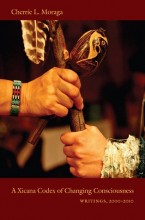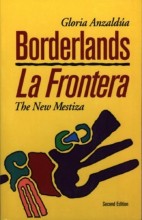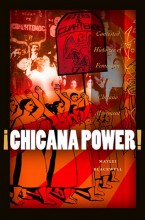 Reading assignment for Monday April 16, 2012. Your reply (under Comments) is due before class. Your response should demonstrate you’ve done and thought about both of the readings. Be sure to check and make sure your response posts.
Reading assignment for Monday April 16, 2012. Your reply (under Comments) is due before class. Your response should demonstrate you’ve done and thought about both of the readings. Be sure to check and make sure your response posts.
Cherríe Moraga, A Xicana Codex of Changing Consciousness (79-162)
Based on your readings this semester on textual communities and print culture, what does Moraga’s writing reveal about the construction of communal texts, anthologies and performances? How much ownership do we have of our writing? How much debt to others? What do you think of Moraga’s decision not to contribute to This Bridge We Call Home?
On a more personal level, do you think Moraga is right about how she and Anzaldúa could have resolved their differences? Do you agree with her reading of Anzaldúa’s writing as having more to do with vision of the ideal than the more concrete politics of process?

